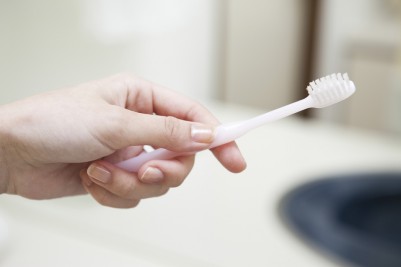Five Ways to Stop Bleeding Gums
Have you noticed pink-colored fluid while spitting out your toothpaste? Or have you noticed that your gums bleed as you floss? A little bit of blood is not alarming, but keep an eye on how much and how frequently gum bleeding is happening. Besides, here are some of the key things to be aware of and practice to relieve and prevent bleeding gums.
1. Regular Flossing and Brushing
One of the leading causes of gum bleeding is when there is a plaque buildup on the gum line. If left untreated, the food, bacteria, and plaque can result in gingivitis. With time, it can result in tartar, resulting in extreme conditions like periodontitis.
To avoid this,
- Maintain oral hygiene
- Brush teeth twice daily and floss between the teeth every day
- Consume fluoridated water
- Brush your teeth with fluoride toothpaste
- Visit the dentist once a year, even if you have dentures or no natural teeth
2. Ensure You Are Using the Right Dental Tools
Medium to firm bristles on a toothbrush ensure deep cleaning. Use a firm stroke when flossing or brushing your teeth.
2A. Use the Most Appropriate Toothbrush
When it comes to toothbrushes, there is no one-size-fits-all approach. If you have bleeding or sensitive gums, you will need a different type of toothbrush. Look for soft toothbrushes or those for sensitive teeth. Change a toothbrush every three months.
2B. Choose Your Toothpaste Wisely
Some kinds of toothpaste help get rid of the bacteria that irritate gums. Parodontax is one such that can reduce plaque buildup. Sensodyne is made for sensitive teeth and gums and can help reduce bleeding.
2C. Learn the Right Brushing Technique
Using a different brushing technique may prevent gum bleeding. Try all corners, inside and outside, top to bottom, and along the edges. This will help ensure that the bacteria and food go out of the mouth. Brushing hard is not always proper brushing. Lesser force can also get the job done without hurting the mouth.
3. Maintain a Healthy Diet
What you eat and when you do also impact the gums. Foods containing excessive carbohydrates or sugar lead to gum and tooth problems. Eating more fruits and vegetables can help offset the challenge of carbohydrates and sugar. Try limiting the number of sweets or sweet beverages you eat or drink.
4. Observe Medication Side-effects
Certain medications are known to cause bleeding in the gums. Some types of pain relievers thin your blood, increasing the risk of bleeding. If you observe that your medication is causing dry mouth, consult your doctor. You may request him/her to prescribe a medication that will not likely cause this. If dry mouth cannot be avoided, try drinking a lot of water, avoiding alcohol consumption, chewing sugarless gums, and not using tobacco products.
5. Consult a Dentist
If you notice bleeding gums, consult your dentist. He/She can diagnose the underlying issue and provide prompt treatment.
Get Help from Your Dentist
Consult your dentist to learn about the essential tools and right treatment for bleeding gums. Our experienced professionals treat adults and children with equal care. If you encounter any dental problems, reach out without delay.
